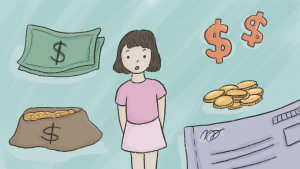
How to Combat Exam Fatigue

When you ask a student how they are doing as the exams get closer, they will typically say something like “stressed,” “tired,” “pressured,” and so forth. Students frequently experience physical and mental exhaustion, especially when big tests are quickly approaching. However, why do these people usually feel that they have too much on their plate when exam time comes around, and is there any way to stop these reasons? To prepare for tests, this article focuses on strategies that students—or anybody else—can employ to store energy and steer clear of activities that could cause them to run out—into the red.
Table of Contents
What are the reasons for exam fatigue?
Everyone’s reason as to why they are energy-deprived will vary depending on the circumstances they are in. However, two main culprits can be seen in almost everyone’s list of reasons for being energy deprived. And they are lack of sleep and stress buildup.
For humans, sleep is an essential component of their daily routine. The “circadian rhythm” is a built-in mechanism in humans that serves as a reminder of when it’s time to sleep and wake up. But because of busy schedules, late-night study sessions, or Netflix binge-watching, the sleep one gets regularly is insufficient to adequately rejuvenate them for the next day.
Of course, there are other reasons why some people feel exhausted or low on energy besides sleep deprivation. Stress accumulation can also occasionally be the cause. Even if someone gets the recommended 8 hours of sleep every day, stress might still cause them to feel weary when they wake up.
Unlike sleep, stress is more difficult to explain. A good way to see it is through animals in the wild versus those in zoos. In real life, it is only seen in animals that are kept captive by humans; it is not seen in any animal that is free in the wild. This could be the reason why, despite getting enough sleep and receiving their basic needs, some people may still feel worn out and overwhelmed by stress.
How to fight fatigue and store up energy for exams?
It’s a little odd that to reserve energy for use during tests and to combat exam fatigue, one must expend energy before experiencing the benefits of these strategies. It would be beneficial to think of these actions and procedures as energy-saving investments that you will reap when the test time comes.

1. Rest adequately and regularly
For most people, sleep is the first thing that comes to mind when discussing energy deprivation or conservation. And the first item on this list is also that. Even if some of you might not be young anymore and can tolerate long, sleepless nights, it’s still crucial to obtain adequate sleep in order to replenish your energy before the exam time. Think of rest as charging your phone every night when you sleep. The more time your body spends charging, the more percentage of energy is returned to the body and the longer it can last.
You should also get enough sleep regularly in addition to during exam season. This makes it possible for your body and brain to get the rest they require, recharging for a new day full of vitality and strength to tackle any obstacle.
2. Avoid cramming before an exam
Even while some students think that the excitement and danger they get from cramming helps them learn, it’s not a good idea to do so when attempting to gain energy for an exam. Cramming will drain more energy than you may have imagined, especially the night before an exam. Your brain uses a significant amount of your daily energy intake, in addition to the fact that you will be running behind on your sleep pattern. This implies that your brain uses more energy the longer it is awake and overworked, which might drastically reduce the amount of energy you have stored.
3. Eat and don’t skip breakfast
Even while some students think that the excitement and danger they get from cramming helps them learn, it’s not a good idea to do so when attempting to gain energy for an exam. Cramming will drain more energy than you may have imagined, especially the night before an exam. Your brain uses a significant amount of your daily energy intake, in addition to the fact that you will be running behind on your sleep pattern. This implies that your brain uses more energy the longer it is awake and overworked, which might drastically reduce the amount of energy you have stored.
4. Avoid relying on caffeine
Sometimes it’s tempting to solely rely on coffee and energy drinks to give you a boost of energy that will last the duration of the exam. This, however, is a grave misinterpretation of the effects of caffeine on the body. Rather than providing you with actual energy, caffeine functions as an adenosine receptor antagonist and stimulant. In the sense that it encourages alertness, it is a stimulant. Similarly, the term “adenosine receptor antagonist” comes from the fact that it can do this task by preventing the adenosine receptor from operating normally. But the question is, what exactly is adenosine? Well, it is a chemical in your brain that promotes feelings of sleepiness and tiredness.
Caffeine therefore only prevents your body from sensing that you have used up more energy than you have; it does not, in fact, provide you with energy. This can significantly worsen symptoms of exhaustion and drowsiness once the benefits from caffeine wear off. Additionally, you wouldn’t want it to wear off during an exam. Thus, make every effort to stay away from caffeine throughout the exam period. Additionally, attempt not to depend too heavily on it if it isn’t feasible.

5. Get enough sunlight
Plants aren’t the only living organism that depends on sunlight to get their energy (well, technically speaking almost all living organisms depend on the energy from the sun’s photons to survive). Human beings also need a little bit of sunlight to boost their energy production.
Sunlight helps your brain produce more serotonin, which can increase your energy and help you stay focused, peaceful, and optimistic. Serotonin belongs to the class of molecules that many people refer to as the “happy chemicals.” These substances aid in elevating a person’s energy, mood, and feelings. Hence, remember to receive enough sunlight each day if you want a little extra energy and a smile.
6. Avoid junk foods
It is normal for students to sometimes eat a snack or two to stave off hunger while studying or getting ready for a test. It is, however, highly recommended that you avoid junk food and any high-sodium goods if you want to be as energetic as possible for the tests. While salt may be a great way to add flavor to a meal or snack, too much of it can affect your energy levels. With too much salt in an individual’s bloodstream, they may experience difficulties sleeping well at night, which could lead to fatigue and feelings of tiredness the next day.
Instead of going for junk foods or any salty snack, it would be a great alternative to snack on some fresh fruits instead such as berries, bananas, or citrus fruits. These fruits contain tons of vitamins and antioxidants that can help keep your body healthy and supply you with the necessary nutrients to be at maximum performance. It is also not a bad idea to munch on whole grains which are rich in dietary fiber, carbohydrates, and protein.
Conclusion
Strategies that put emphasis on both physical and mental health are required to overcome exam fatigue. The secret is to understand the importance of getting enough sleep, avoid cramming at the last minute, and develop healthy lifestyle choices. Getting a good night’s sleep, eating a healthy breakfast, and avoiding too much caffeine can all help maintain energy levels and improve cognitive performance. Furthermore, studies show that exposure to natural sunshine is beneficial for enhancing mood and controlling circadian rhythms. On the other hand, avoiding junk food helps maintain energy levels and fosters a steady state of mind that is essential for performing well on exams. Through the use of these practices, students can enhance their ability to withstand exam fatigue and improve their general well-being during moments of academic difficulty.

Carelle
Carelle is a teacher who has been through the ups and downs of the teacher and learner life. She wishes for every learner to gain educational satisfaction that will help embody the people they want to be in the future.




